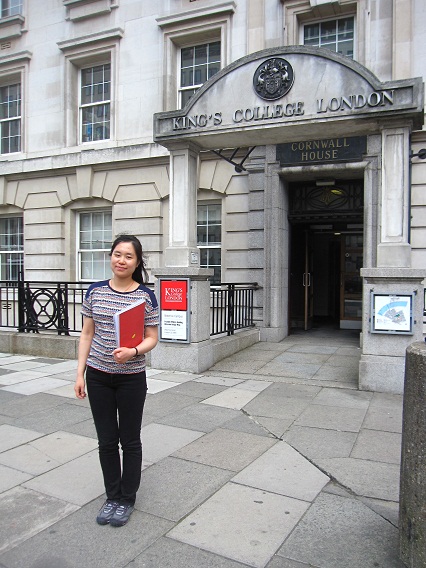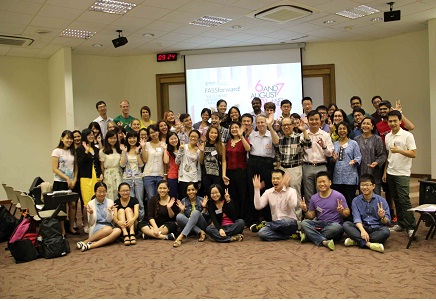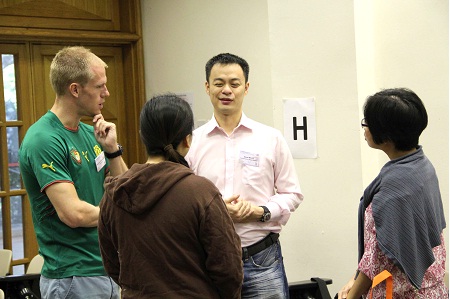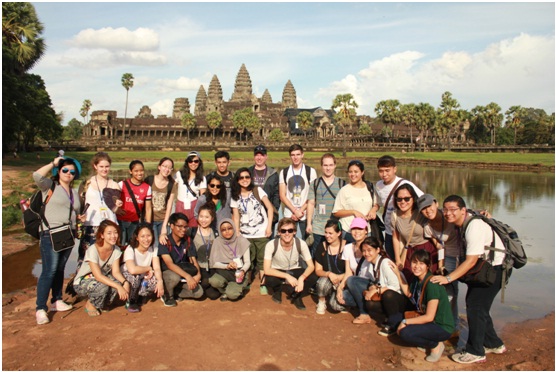Call for Paper for the 7th Next-Generation Global Workshop at Kyoto University
The 7th Next-Generation Global Workshop
Theme: Care and Gender
Date: December 6-8, 2014
Venue: Faculty of Letters Main Building, Kyoto University
I. The Purposes of the 7th Next-Generation Global Workshop
The Next-Generation Global Workshop (NGGW) has been held once a year since 2008 to provide early career scholars with an opportunity to deliver presentations to an international audience and to exchange opinions with their peers from various parts of the world. It was initiated by the Kyoto University Global COE on “Reconstruction of the Intimate and Public Spheres in 21st Century Asia” together with its international partners and succeeded by Kyoto University Asian Studies Unit (KUASU). KUASU and its international partners established Kyoto International Consortium for Asian Studies (KICAS) in January, 2014. The 7th Next-Generation Global Workshop will be held by KUASU in collaboration with the KICAS members on December 6-8, 2014.
The purpose of the 7th Next-Generation Global Workshop is twofold. One is to provide early career scholars with opportunities to learn how to participate and communicate in an international academic setting, as previous years. They receive comments from peers and senior scholars from partner universities. The other purpose is to construct a common academic basis for international collaboration with a special focus on the Asian region. This has been implied in previous years, but from this year, we will pursue this goal more intentionally. We provide chances for the participants to share the latest theories and stimulating arguments on the theme of the year in the lectures by distinguished scholars and specialists very active in the field. The participants are expected to contribute to the generation of new ideas and frameworks we can share for future collaborations in their presentations and in discussions.
II. Theme
The theme of this year’s workshop is “Care and Gender.”
Care is the key for understanding the logics behind the transformation of the intimate and public spheres currently taking place everywhere in the world. Care has been regarded as a part of domestic work, predominantly done by women in the family as a “shadow work” that is invisible in the public sphere. However, as feminist scholars have revealed, care and domestic work became feminized and invisible only in the process of modernization that gave rise to the family with the “male breadwinner/ female housewife” type of gender division.
It is natural that care and domestic work are becoming visible again in the first decades of the 21st century when the boundary between the intimate and the public is blurred again in the process of a fundamental social change prompted by global population ageing, increasing transnational mobility and shifting industrial centers. State intervention, either through defamilialization or familialization policies, is considered to be inevitable, but its permanent insufficiency leads to commodification of care including the introduction of migrant workers and to the promotion of community care.
Seen from the Asian perspective, supply of migrant care workers cannot last forever. Asian societies are ageing too, with unprecedented rapidity. Challenges faced in different places in the world are still quite different but, in the near future, the human race will be facing the same challenge to create a sustainable global society without exploiting and depending on “outside.” Internalization of reproductive cost is inevitable challenge.
Gender is the remaining question. It is true that one third of family care takers are male in Japan, the most aged society in the world. However, workers in the care sector promoted by state intervention are predominantly women as well as the majority of migrant care workers. People might say that defamilialization of care would not change highly gendered commitment to care. Is it possible to eliminate the gendered division of labor? Otherwise, is there a way to establish a fair division of labor by gender?
Care and gender are the keys for imagining and designing a new world that assures fairness and sustainability in the era of longevity. For this reason, the 7th Next Generation Global Workshop takes up the issue of care and gender as the keys for understanding current transformation of the world and designing the future.
The next-generation participants are expected to present their innovative thoughts and research results on such topics but not limited to;
State intervention and care
Role of the state, family, community and market in provision of care
Gender (im)balance of care
Training and skills development of care work
Care work and Poverty
Work life balance and family care
Healthcare and migration Migration of elderly
Rights to care and rights to provide care
Divergence and convergence of welfare policy
Care work and abuses
Family law and care
The participants of the workshop can learn about the most advanced theories and stimulating arguments from the specialists in this field who deliver lectures.The participants are to join a field trip to nursing homes and nursery schools in Kyoto or surrounding areas to learn about elderly care and childcare in Japan, the most aged society in the contemporary world.
III. Application
Schedule for the workshop (Japan Standard Time)
Application deadline: September 27, 2014
The result of review: beginning of October.
Deadline for the submission of the full paper (4,000-6,000 words) : November 20th 2014. Workshop: December 6-8, 2014
The applicant should provide the following information in the pdf attached email:
a) Name (please capitalize your family name)
b) Title
c) Position (Master’s course student, Ph.D. course student)
d) Affiliation
e) Postal Address, Telephone Number, and Email Address
f) The name of a referee who is a faculty member of one of the KUASU overseas partner universities
g) Travel award application. Conditions apply. See below. ( Yes, No, Not Applicable )
h) A 350-word maximum abstract in English
The application should be sent as a PDF file to kuasu.nextgeneration★bun.kyoto-u.ac.jp(★
@.)
Eligibility for application
Master’s course students and Ph.D. course students of KUASU overseas partner universities. (http://www.kuasu.cpier.kyoto-u.ac.jp/english/about/partner-universities-and-research-institutes) The Organizing Committee will screen the applications by candidates’ qualifications as well as the content of their abstracts.
Fee for Registration:
No registration fee required. Travel grant available upon conditions below.
Travel award application:
Travel award is applicable only for regular students at master’s and Ph.D. course from the following universities due to the rules of the fund. The organizing committee will select around
12 students for travel award based on quality of abstract and relevance to the theme.
National University of Singapore
Chulalongkorn University
University of the Philippines
Vietnam Academy of Social Science
University of Putra Malaysia
University of Indonesia
University of Hasanuddin
National Taiwan University
National Chung Cheng University
Seoul National University
Beijing University
Beijing Normal University
Beijing Foreign Studies University
Fudan University
Nanjing University
University of Delhi
Tribhuvan University
Qatar University
University of Hawaii
Heidelberg University
Travel award covers airfare, domestic transportation from Kansai Airport to hotel, and hotel accommodation for four nights accordingly to the rules and regulations of the University. Meals are not covered. Flights and hotels are arranged by the KUASU office.
IV. For Professors
To support active discussion in the Next-Generation workshop, we would like to ask KUASU partner professors to participate in the workshop as advisors who provide comments on the papers presented in a session. KUASU will cover the cost of hotel accommodation for four nights in Kyoto and you are welcome to join the fieldwork tour to nursing homes and nursery schools in the City. We are sorry that we cannot cover your airfare due to budgetary constraints. Please kindly inform us of your attendance plans, including your name, affiliation, and position, not later than September 30. We would appreciate your cooperation in the program.
V. Credit and Certificate
The Next-Generation Global Workshop is recognized as a course with 2 credits at Graduate School of Letters, Kyoto University. The participants from Kyoto University can receive 2 credits. The participants from other universities will receive a certificate. The partner universities are encouraged to recognize this certificate and give credits to the participants.
Organizing Committee of the 7th Next-Generation Global Workshop, Kyoto University Asian Studies Unit (KUASU)
Emiko Ochiai, Wako Asato, Masahro Yamada, Shoko Kurata, Megumi Komazaki
—————————————————————————————
Contact: Organizing Committee of the 7th Next-Generation Global Workshop, Kyoto University
Asian Studies Unit.
Email: kuasu.nextgeneration★bun.kyoto-u.ac.jp(★→@)
Call for Paper_The 7th Nex-gen Global Workshop




